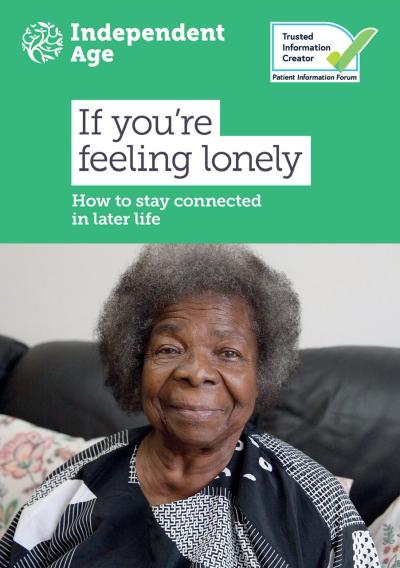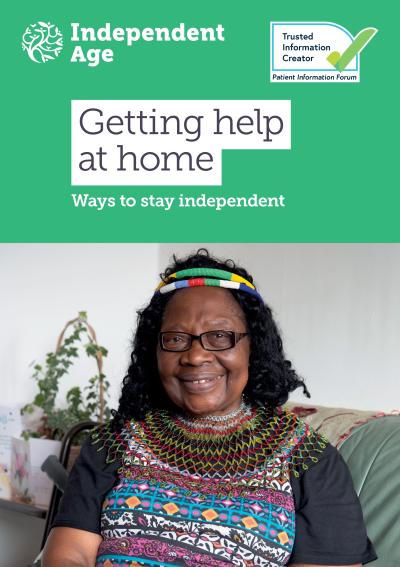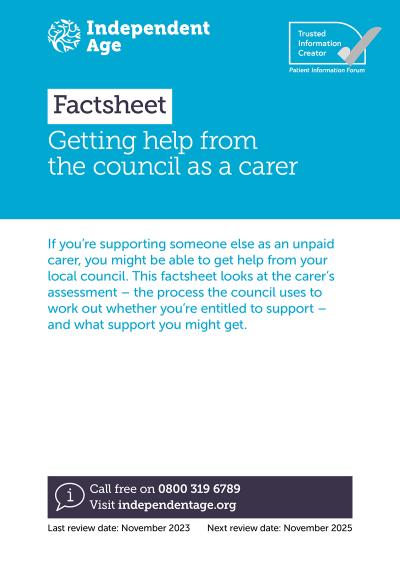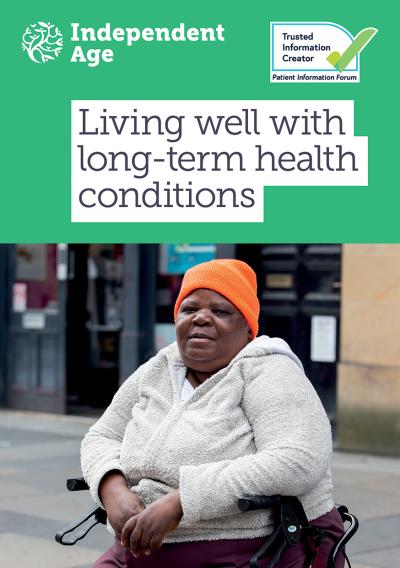Related publications

If you're feeling lonely

Getting help at home

Getting help from the council as a carer

All relationships change over time. But significant life changes, such as retirement or ill health, can place an extra strain on them. Whether you have time to prepare for change or it’s unexpected, you can get help to cope.
Many people just deal with relationship problems as they come along, without discussing their hopes and expectations or seeking help.
Some relationships – such as with a partner, relative or close friend – may become your most important connections in later life. But if one of you is going through a major change, it can be a difficult time. It’s important to keep talking to each other and, if necessary, ask for support.
Even if you’ve looked forward to having more free time, it can be difficult to adapt to retirement. You may miss having a sense of purpose and the status you enjoyed at work. Your social circle could get smaller. Or you may find a small handful of people - such as your partner, relatives or a friend - become more important sources of support. But spending a lot more time together can sometimes have a negative impact on your relationship.
If you can, plan in advance how you want to spend your time – both together and apart. Having a shared interest or hobby can help but it’s also important to maintain your independence. Try to:
Relate has some useful tips to help you plan for retirement.
Living with a health condition may bring you closer to your partner, relative or friend, but it can also put pressure on that relationship. Even if you cope in your main relationship, you may notice that other friendships change or you may not get the support you’d like. For example, you may be unable to do your usual activities with friends and relatives, or may feel reluctant to ask for help. This can make you feel lonely and isolated.
It can help to talk through the impact of your health condition on your relationships. It may be helpful to speak with friends or family to share how you’re feeling. If you feel that counselling would help, try Relate or Relationships Scotland for support. There are also many organisations that can help if you’re living with a long-term condition.
If one of you becomes a carer to the other, this can affect you both in different ways. Make sure you’re getting all the support you need by asking your local council for a care needs assessment and a carer’s assessment.
Many carers are unprepared for the change in relationship with the person they care for. You can get help from Carers UK, and they offer advice on specific problems. The charity also has an online forum where you can talk to other people in a similar situation.
Even if you are in a close relationship, you may still feel lonely. This can happen slowly over the years. For example, you may have developed different routines and hobbies or lost a shared focus. Perhaps you find conversation has become limited to things like what to have for dinner or whether the phone bill has been paid.
If you’re feeling lonely in your relationship, it’s possible that the other person is too. Even if you’ve known each other a long time, you won’t know what they’re thinking and feeling without asking. You’ll need to find ways to reconnect if you want to bring back the quality, love and affection of your earlier relationship.
Relate has some useful information on how to improve communication in your relationships. You may also benefit from some relationship counselling to get back on track. You may have to pay for this.
Over time, your sexual relationship is likely to change for many reasons. With communication and advice, you and your sexual partner can successfully navigate these changes to maintain a fulfilling sex life.
Communication is at the heart of good sex. It’s important to keep talking and listening to your partner about what you both want and need. Sex doesn’t have to be about intercourse – showing affection and appreciation, kissing, touching and being close are all just as important. You need to look after this aspect of your relationship.
At times you may want sex more or less often than your partner, or you may want different things. Even something simple, like moving to separate beds, can lead to a lack of closeness. Talk to your partner and reassure them. If they get upset, give them time and come back to the conversation later. There are many different forms of intimacy you could explore that could be satisfying.
Changes to your appearance, such as hair loss or weight gain, may affect your confidence and self-esteem. Changes in your body and hormones may also affect your desire. Try to accept and adapt to the changes, and try different ways to enjoy intimacy and sex.
Men may experience reduced sensitivity or have difficulty getting or maintaining an erection. This can lead to a loss of confidence and unwillingness to try again, or performance anxiety. If this happens, seek help from your GP. There are treatments available – for example, medication such as Viagra.
For women, the effects of the menopause can last for years, including hot flushes, night sweats, disturbed sleep and low mood. A decline in oestrogen can lead to vaginal dryness, which can cause pain or difficulty when having sex – using a lubricant may help. You may experience a lower sex drive, but this is often temporary.
If you’re experiencing difficulties, talk to your partner. Sometimes a physical problem can be made worse by anxiety. By sharing your worries you can deal with problems together. You could also seek help from your GP. You can find more information about some common problems on the Relate website.
Sex isn’t just enjoyable, it also contributes to our quality of life. Intimacy is important to our physical and mental health and wellbeing, and there are many benefits to being sexually active. Sex may:
Unfortunately, illness is one of the most common reasons people give for ending sexual activity. This may be because people worry about the risks, there is a reduction in sexual desire either naturally or as a result of medication, or people experience a loss of confidence and feeling unattractive.
If you’re a carer, you may worry that you’re being demanding by wanting to have sex. If you’re being cared for, you may lose confidence and self-esteem. But it could be worthwhile to find a way to continue to enjoy sex. Issues relating to illness may be treatable, so talk to your GP. You may find it difficult to ask for help but many sexual difficulties can be overcome by relatively simple advice. Your GP could help you by:
If the problem is physical, you could ask them for a referral to a specialist who may be able to advise.
If psychological factors are contributing to a sexual problem, you could get specialist help from Relate or Relationships Scotland. You can also find details of therapists from the College of Sexual and Relationship Therapists.
There are many charities and other organisations that can advise you on sex when you’re living with a specific condition. You can find contact details on our webpage Where to get support with a long-term condition.
You may worry that a diagnosis of dementia will have an effect on your sex life. People with dementia often have sexual needs, just like everyone else, and maintaining or developing a sexual relationship can enhance your wellbeing.
Your sexual relationship may change in unpredictable ways and there may be problems in relation to sexual expression and behaviour – for example, you may lose your ability to judge what’s appropriate and what isn’t. It’s also important that there is always consent and some people with dementia may not be able to give this consent. The Alzheimer’s Society has a useful guide to sex and intimate relationships.
Ending a relationship with your partner is very difficult and it can be hard to know if it’s the right thing to do. Apart from the emotional impact, there may be practical, legal and financial problems to sort out.
Only you can make the decision, but it’s worth seeking help through relationship counselling or mediation before you decide. Read Ending your relationship for more information.
If you’ve been bereaved, our free guide Coping with bereavement suggests where you may find sources of comfort and support.

For relationship advice, contact Relate or Relationships Scotland.
If you’re caring for someone, Carers UK can provide help and advice.